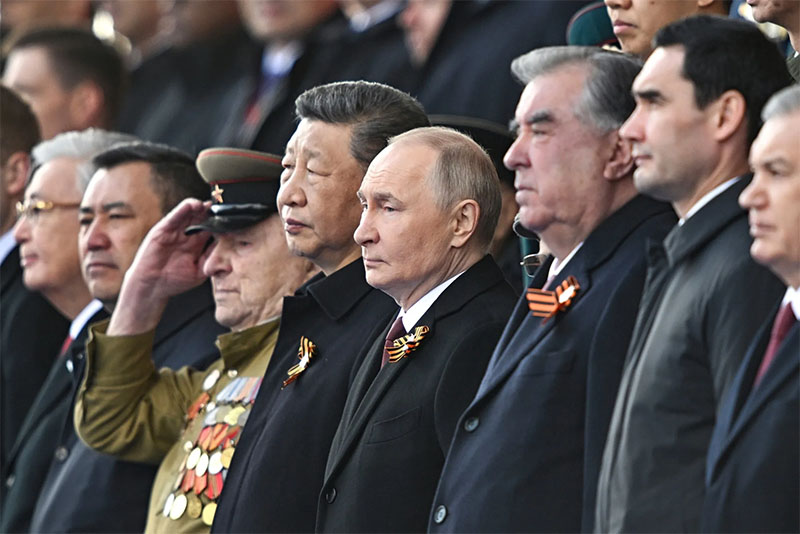Photo Credit: Getty Images
Russia's annual Victory Day parade took on new meaning this year as President Vladimir Putin used the occasion to signal strength and solidarity in the face of Western isolation. Standing shoulder to shoulder with Chinese President Xi Jinping in Moscow's Red Square, Putin hosted one of the most elaborate parades in recent years—on the 80th anniversary of the Soviet Union's defeat of Nazi Germany in World War II.
The event, traditionally a solemn tribute to the 25–27 million Soviet lives lost in the war, has become a platform for modern political messaging. Since the 2022 invasion of Ukraine, Putin has repurposed Victory Day into a showcase for military power and ideological defiance. This year's iteration was perhaps the clearest yet, blending reverence for history with a message aimed squarely at the West: Russia is not alone.
In a striking upgrade from previous years, the parade included thousands of troops, modern and vintage tanks, and for the first time, drones such as the Geranium-2, a Russian version of the Iranian-designed Shahed. Leaders from Brazil, Egypt, Venezuela, the Palestinian Authority, and even EU-member Slovakia stood with Putin, many wearing the controversial black-and-orange ribbon of Saint George—a symbol banned in several countries due to its association with Russia's war in Ukraine.
The presence of such high-profile guests marked a significant shift from recent years when only post-Soviet states and close allies attended. This was no accident. As Western leaders gathered in Lviv to express support for Ukraine, Putin assembled his own circle of allies in Moscow, a deliberate counter-narrative amid stalled peace talks and international condemnation.
Putin's offer of a three-day ceasefire around the event was swiftly rejected by Ukraine as a political ploy. Kyiv accused Moscow of using the truce to stage a propaganda parade while continuing attacks, including deadly airstrikes on Ukrainian cities. Ukrainian President Volodymyr Zelensky dismissed the Kremlin's maneuver, asserting that Ukraine would not facilitate Putin's attempt to escape diplomatic isolation.
Ukraine's European allies weren't sitting idly by either. Estonia, Latvia, and Lithuania blocked airspace to planes heading to Moscow, complicating travel for several of Putin's guests. Serbian President Aleksandar Vucic had to reroute through Azerbaijan, and Slovakian Prime Minister Robert Fico criticized the move as "extremely disruptive."
As missiles flew and alliances were tested, Putin's message rang clear: Russia remains defiant, determined to project power and preserve its version of history—no matter the global backlash.


